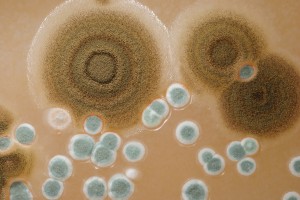 Snow has begun to turn to rain and before you know it, spring will be here again. With warmer temperatures comes a lot of wet weather, and humidity levels that can make your home feel like a swamp. Air conditioners can mitigate the problem somewhat, but it’s a very crude way to address the problem, and it places a lot of undue strain on the system. Far more effective is a dehumidifier: designed to remove the moisture throughout your house and provide a great deal of control in the process. Over time, it can extend the lifespan of your HVAC system and provide you with decades of reliable use in most cases. Here’s how it works.
Snow has begun to turn to rain and before you know it, spring will be here again. With warmer temperatures comes a lot of wet weather, and humidity levels that can make your home feel like a swamp. Air conditioners can mitigate the problem somewhat, but it’s a very crude way to address the problem, and it places a lot of undue strain on the system. Far more effective is a dehumidifier: designed to remove the moisture throughout your house and provide a great deal of control in the process. Over time, it can extend the lifespan of your HVAC system and provide you with decades of reliable use in most cases. Here’s how it works.
The Clean Air Act Blog: Posts Tagged ‘Humidity’
Install a Dehumidifier This Spring
Monday, March 6th, 2017Control Your Home’s Moisture – Humidity Is Key
Monday, July 11th, 2011Most people don’t give a second thought to humidity until it is either much too high or uncomfortably low. And if you have a state of the art home comfort system, you’re probably comfortable inside all year long anyway. But there are several reasons to pay attention to the humidity level in your home and take action if you realize that it isn’t providing the comfort level you’ve come to expect.
Many problems arise from excess or inadequate indoor humidity levels. For instance, a lack of humidity causes your skin and nasal passages to dry and crack, which is obviously pretty unpleasant. But air that’s too dry can also make the symptoms of allergies, asthma and colds worse. Anyone in your home suffering from these conditions will be much more comfortable when the right level of humidity is restored. Another great benefit is that the indoor air quality will no longer contribute to longer and more sever colds and flus in the winter.
Too much humidity is a problem too, though. It promotes the growth of mold, which is a big contributor to indoor air pollution. Mold spores are a big time allergen. The more moisture there is in your home, the more mold there’s likely to be. High indoor humidity levels also promote the growth of dust mites, another major indoor air contaminant and allergen.
Of course, you probably have a great indoor air cleaner in place to get all of those contaminants out of your home’s air supply. But if the air inside your home is too moist or too dry, it can actually make it harder for the air cleaner to remove all types of contaminants. Not only are you putting a greater strain on your body and immune system, you’re asking your air cleaners to work much harder, which can cost you money in repairs and filter replacements.
For all of these reasons, it’s important to put in a humidification system to maintain the overall quality of your indoor air. Plus, a properly humidified environment is simply more comfortable to live in. A humidifier can easily be integrated into your current home heating and cooling system, so you don’t have to worry about high installation costs or equipment compatibility. All you have to do is sit back, relax and breathe in the fresh air that your humidification system makes possible.
